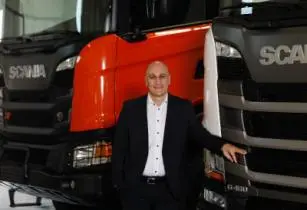Carbon dioxide (CO2) emissions can be reduced by more than 20 per cent by simply optimising transport systems, according to a new research by Scania Middle East, titled ?The Pathways Study?
This optimisation, according to Scania, can contribute to the realisation of the UAE National Agenda 2021?s Sustainable Environment and Infrastructure pillar.
According to the research, achieving a fossil-free commercial transport system by 2050, as per the Paris Agreement timeframe, is not only environmentally sustainable but financially attractive from a societal perspective.
The Pathways Study analyses the possibilities of achieving fossil-free commercial transport by 2050, including examining the financing and infrastructure required in order to meet sustainable transportation system goals.
Exploring alternatives such as biofuels, which offer the highest CO2 emissions reductions, as well as electrification, hydrogen fuel cells and e-highways, will pave the way to a fossil-free future.
?zcan Barmoro, managing director of Scania Middle East, said, ?The transportation industry must adopt rapid and immediate change in order to contribute substantially to achieving global goals and realising a fossil-free world by 2050.?
?Our research has determined that significant progress must be made by 2025, in terms of implementing new technologies, infrastructure, partnerships, and behaviours. Scania Middle East welcomes the UAE?s decision to implement Euro 4 emissions level for heavy-duty vehicles. The UAE already has the fuel quality to move to Euro 6, which is the required emission level in Europe. We hope and expect the other Gulf countries to follow the UAE?s example,? he added.
The research stated that Emirates Petroleum Products Company (EPPCO) and Emirates National Oil Company Group (ENOC) have been using Euro 5 Scania engines for two years, providing efficient fuel performance and valuable reduction of carbon footprint. A number of Scania?s customers in the region have already started using compressed natural gas (CNG) engine vehicles.
?Scania believes that innovation, profitability and sustainability can, and should, go hand in hand. We are focused on delivering energy efficiency, alternative fuels and electrification, as well as smart and safe transport. All of these elements must work in parallel with one another in order to create a truly sustainable transport system,? Barmoro added.







